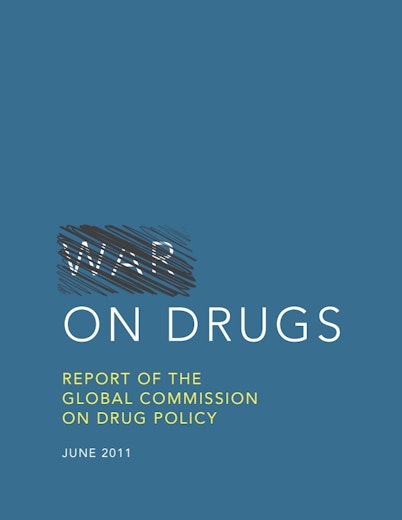A New Beginning on Drug Policy
By Kasia Malinowska-Sempruch & David Holiday
The Secretary General of the Organization of American States released a report that considers possible alternatives to current drug policies internationally and represents the most high-level discussion about drug law reform ever undertaken.
The report envisions possibilities for ending the war on drugs as well as the introduction of policies rooted in public health and human rights.
The review process was commissioned at the Cartagena Summit of the Americas—a meeting of heads of state that included President Barack Obama—and reflects the growing dissatisfaction with the status quo. Several Latin American heads of state, frustrated with the failure and counterproductive nature of existing drug control structures, pushed for this review.
Secretary General of the OAS José Miguel Insulza said, “Leaders and heads of state and government reached significant consensus on some basic concepts: that the drug problem is one of the most important challenges facing the hemisphere, with its impact on public health and the cost incurred by states, and with the tremendous amount of violence that it brings.”
Insulza added “the current approach, beyond some important results, has not been successful and is not working well enough,” and that “we must find and mix new and better alternatives, without ceasing all that we are doing.”
It is notably the first time any major multilateral agency has given serious and detailed visualization to alternatives to prohibition including legal market regulation, or reform of the UN drug conventions.
The report puts forth various possibilities for the future of drug policy between now and 2025, including many that would have been unthinkable a few short years ago.
The OAS review process was divided into two components. The first was a series of five analytical reports that were compiled on key topics. These were then used to inform the scenario planning reports, which envision different possible scenarios for the future of drug policy between now and 2025.
Insulza wrote that the document's purpose "is to assist the hemisphere’s leaders to find a better way to address these challenges. It is neither our duty nor our job to marry ourselves to a single policy option or to choose a single scenario. That is up to the heads of state and government.”
The United Nations General Assembly will convene a special session on drugs in 2016, and it is hoped the current scenarios will influence some of the discussion.
Daniel Wolfe, Director of the International Harm Reduction Development Program at the Open Society Foundations, contributed to this article.

Kasia Malinowska-Sempruch is a director of Programs at the Open Society Foundations.

Until November 2021, David Holiday was a unit manager in the Latin America Program at the Open Society Foundations.

